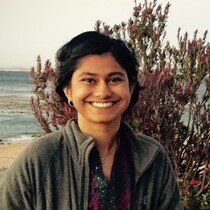Sunday, June 18th (all times are in PDT);
9:00am
Opening
9:10am - 10:30am
Session 1 - Systems for ML (Chair: Matthias Boehm)
9:10am
MLflow2PROV: Extracting Provenance from Machine Learning Experiments
Marius Schlegel (TU Ilmenau), Kai-Uwe Sattler (TU Ilmenau)
9:30am
Data Management and Visualization for Benchmarking Deep Learning Training Systems
Ties Robroek (IT University of Copenhagen), Aaron Duane (IT University of Copenhagen), Ehsan Yousefzadeh-Asl-Miandoab (IT University of Copenhagen), Pinar Tozun (IT University of Copenhagen)
9:50am
EVA: An End-to-End Exploratory Video Analytics System
Gaurav Tarlok Kakkar (Georgia Institute of Technology), Jiashen Cao (Georgia Tech), Pramod Chunduri (Georgia Institute of Technology), Zhuangdi Xu (Georgia Tech), Suryatej Reddy Vyalla (Georgia Institute of Technology), Anirudh Prabakaran (Georgia Institute of Technology), Jaeho Bang (Georgia Institute of Technology), Kaushik Ravichandran (Georgia Institute of Technology), Ishwarya Sivakumar (Georgia Institute of Technology), Aryan Rajoria (Georgia Institute of Technology), Ashmita Raju (Georgia Institute of Technology), Tushar Aggarwal (Georgia Institute of Technology), Shashank Suman (Georgia Institute of Technology), Myna Prasanna Kalluraya (Georgia Institute of Technology), Subrata Mitra (Adobe Research), Ali Payani (Cisco Systems Inc.), Yao Lu (Microsoft Research), Umakishore Ramachandran (Georgia Institute of Technology), Joy Arulraj (Georgia Tech)
10:10am
When Can we Ignore Missing Data in Model Training
Cheng Zhen (Oregon State University), Amandeep Sing Chabada (Oregon State University), Arash Termehchy (Oregon State University)
10:30am - 11:00am
Break
11:00am - 12:20am
Session 2 - ML Optimization (Chair: Madelon Hulsebos)
11:00am
Using Pipeline Performance Prediction to Accelerate AutoML Systems
Haoxiang Zhang (New York University), Roque Enrique López Condori (New York University), Aécio Santos (New York University), Jorge H Piazentin Ono (NYU), Aline Bessa (New York University), Juliana Freire (New York University)
11:20am
P2D: A Transpiler Framework for Optimizing Data Science Pipelines
Yordan Grigorov (Technische Universität Berlin), Haralampos Gavriilidis (Technische Universität Berlin), Sergey Redyuk (TU Berlin), Kaustubh Beedkar (IIT Delhi), Volker Markl (Technische Universität Berlin)
11:40am
Teaching Blue Elephants the Maths for Machine Learning
Clemens Ruck (TUM); Maximilian E Schüle (University of Bamberg)* 1
12:00pm
Transactional Python for Durable Machine Learning: Vision, Challenges, and Feasibility
Supawit Chockchowwat (University of Illinois at Urbana-Champaign), Zhaoheng Li (University of Illinois at Urbana-Champaign), Yongjoo Park (University of Illinois at Urbana-Champaign)
12:20am - 1:30pm
Lunch
1:30pm - 3:00pm
Session 3 - Chair: Shreya Shankar
1:30pm
Enhance, Don't Replace: A Recipe for Success in Data Science Tooling [Keynote]
Aditya Parameswaran (University of California, Berkeley)
Abstract: A large fraction of the data science and machine learning workflow is performed in computational notebooks such as Jupyter with libraries such as pandas, NumPy, and scikit-learn in an ad-hoc, highly iterative manner. However, this process is not without its challenges. We describe three open-source tools that we've built that address scalability, interactivity, and reproducibility challenges along the way -- and have been adopted widely by data scientists. We also reflect on how our recipe -- of enhancing existing tools as opposed to replacing them -- may need revisiting in the exciting arena of LLM-powered data work, which forms the focus of our new EPIC Data lab at Berkeley.
2:30pm
DiffML: End-to-end Differentiable ML Pipelines
Benjamin Hilprecht (TU Darmstadt), Christian Hammacher (Software AG), Eduardo S Reis (TU Darmstadt), Mohamed Abdelaal (Software AG), Carsten Binnig (TU Darmstadt)
3:00pm - 3:30pm
Break
3:30pm - 4:45pm
Session 4 - ML Pipelines (Chair: Paroma Varma/Madelon Hulsebos)
3:30pm
Panel: Data Management challenges for LLM-powered solutions
TBA
4:30pm
Awards + closing
↑ top

 Matthias Boehm
Matthias Boehm Madelon Hulsebos
Madelon Hulsebos Shreya Shankar
Shreya Shankar Paroma Varma
Paroma Varma
